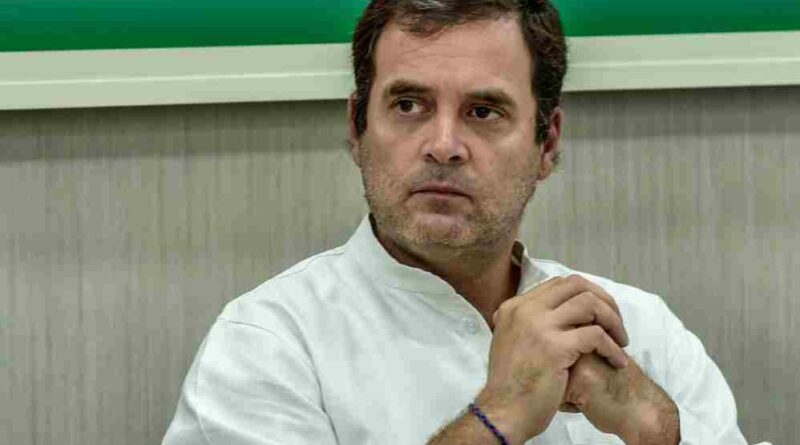Rahul Gandhi Slams RSS, Says It Seeks Manusmriti Rule Over Constitutional Values
In a sharp political attack, Congress leader Rahul Gandhi accused the Rashtriya Swayamsevak Sangh (RSS) of undermining India’s Constitution, claiming that the organization’s real ambition is to enforce the Manusmriti — an ancient Hindu text that has long been criticized for its regressive views on caste and gender.
During a recent address, Gandhi didn’t mince words. “The mask is off. The RSS doesn’t believe in the Constitution of India. What it truly desires is a society governed by the Manusmriti, not by democratic values,” he declared. His statement stirred a wave of political reactions, with supporters echoing his sentiments and critics accusing him of stoking unnecessary divisions.
Gandhi’s remarks come at a time when the political climate is already charged, with debates raging across the country over freedom of expression, rights of marginalized communities, and the direction in which India’s democracy is headed. For the Congress leader, this isn’t just about party rivalry — it’s about defending the soul of the nation.
“The Constitution is a promise of equality, justice, and liberty to every Indian, regardless of their caste, religion, or gender. The RSS, through its actions and ideology, seeks to dismantle that promise,” he said passionately. Gandhi pointed to what he described as a systematic erosion of institutional independence and a growing push toward authoritarianism.
The reference to the Manusmriti is particularly symbolic. Historically, the text has been seen as the foundation of the rigid caste system and patriarchy. Social reformers like Dr. B.R. Ambedkar, the architect of the Indian Constitution, publicly rejected it — even burning copies of it as a protest against caste oppression. Gandhi’s comments were clearly meant to invoke that legacy and draw a line between two competing visions of India.
While the BJP and its ideological parent, the RSS, maintain that their agenda is one of cultural nationalism and pride in India’s heritage, Gandhi insists that their vision sidelines the inclusive, pluralistic spirit enshrined in the Constitution.
“This is not a battle between two political parties. This is a battle for the idea of India itself,” he said, calling on citizens to remain vigilant and proactive in protecting democratic principles.
In recent years, the Congress party has often accused the RSS-BJP combine of trying to re-write history, control academic discourse, and impose majoritarian narratives. Gandhi’s statement is the latest in a series of ideological confrontations that are likely to dominate the political discourse leading up to future elections.
What remains to be seen is how the wider public responds. Will Gandhi’s warning resonate with the masses as a call to defend constitutional democracy, or will it be seen as just another round of political rhetoric in an increasingly polarized landscape?
For now, one thing is clear: the battle for India’s ideological future is far from over — and the Constitution, once again, is at the heart of it.
Disclaimer
The information and content shared on digitalgithub.com — including articles, blogs, news, guides, and other resources — is intended for general informational and educational purposes only. We do not guarantee the completeness, reliability, or suitability of any information. Always seek the guidance of a qualified professional before making decisions based on the information you read. Use this site at your own risk.

